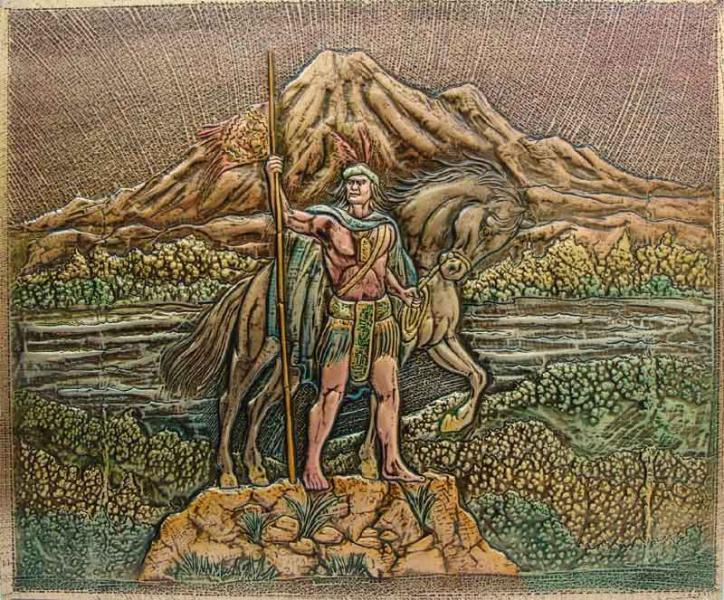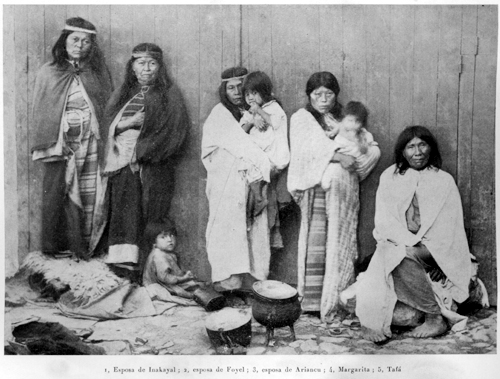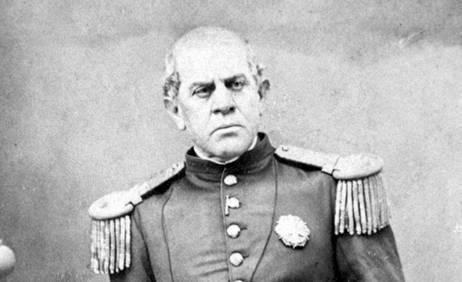The year 2011 has marked the bicentenary of the birth of Domingo Sarmiento, President of Argentina from 1868 to 1874, a political figure sometimes celebrated as the architect of the Argentine nation; he is also seen as a liberal intellectual, a proponent of popular education, a writer of considerable talent, and as “probably the most widely read and influential historian of the 19th century.”
Yet Sarmiento was also a deep-dyed racist who believed that the indigenous population of his country should be eliminated – and when in power he took steps to ensure that this happened. In the north, in the war against the Guaraní Indians of Paraguay in the 1860s, and in the south, against the Araucanian and Pampas Indians in the 1870s and 1880s, Sarmiento was the intellectual author of a war of extermination over several decades that has left today’s Argentina with a legacy of liberal hypocrisy and a sense of lasting injustice.
Of course it can be argued, and it often is, that Sarmiento was a man of his time, no better and no worse than many others. Yet that is not quite good enough.
Sarmiento overlapped during his years in Chile with Simón Rodríguez, the teacher of Bolívar who was also a great educationalist. Rodríguez was a passionate advocate ofeducating Indians, not of exterminating them. And Lucio Mansilla, some 20 years younger than Sarmiento, who made a journey through the land of the Ranqueles in 1867, found them to be interesting and intelligent, and in many ways admirable. He did not call for them to be exterminated. Juan Bautista Alberdi, just one year older than Sarmiento, thought that there was no more disastrous crime than a war against the Indians followed by European immigration.
The Eulogizing of Sarmiento
For years, the Argentine school day began with a “Hymn to Sarmiento,” a song that refers to the former President as “the greatest of the great”. He's been hailed as the founder of Argentine liberalism and the backbone of the Radical Party. On the centenary of his death in 1988, the Argentine government funded two celebratory conferences in the United States, one at Harvard and the other at Berkeley.
The papers at these conferences were later published, and most of the contributors were quite content to re-state arguments explaining what a wonderful figure Sarmiento had been. Many of them were North Americans, and one might hazard the thought that Americans, like Argentines, have traditionally been rather unconcerned by their own history as exterminators of Indians.
Yet one contributor to the Harvard panel, Kristine Jones, specifically addressed Sarmiento’s “Indian policy”. She noted that “the contradiction between the image of Sarmiento as a progressive statesman, and the harsh record of the military conquest of the Indians under his administration, is not a comfortable topic to broach on the occasion of a centennial commemoration.” But, to her credit, she went on to do just that.
Sarmiento the Racist
The classic statement about indigenous peoples made by Sarmiento was written when in exile in Chile in 1844. He was participating in a debate with José Lastarría, a Chilean writer, about the legacy of Spain:
“We must be fair with the Spaniards,” he wrote, “byexterminating a savage people whose territory they were going to occupy, they merely did what all civilised people have done with savages, what colonisation did consciously or unconsciously: absorb, destroy [and] exterminate.”
Sarmientos’ further remarks are even more revealing: “For us,” he wrote, “Colo Colo, Lautaro and Caupolicán (the early Indian opponents of the Spaniards in Chile), in spite of the civilised and noble manners they were given by Ercilla (the 16th century poet), are nothing more than repulsive Indians that we would have hanged, and we would hang today if the Araucanians were to embark on a war against Chile.”
There was a war by the Chilean white settlers against the Mapuches of the Araucania in the 1860s and 1870s, and Sarmiento has his own share of intellectual responsibility for that.
Yet for most of the past century and a half, few people have had a bad word for Sarmiento. He was seen to represent all that is good and decent in Argentina’s history and national life, a positivist and a legendary promoter of education.
In today’s Latin America, however, in the 21st century, where the indigenous peoples have emerged from centuries of indifference and neglect to play an important political role in countries like Ecuador and Bolivia, and beyond, it has proved difficult for Argentina to remain untouched by this development.

Finally, a revision of history
During the last ten years of the Kirchner government, with the revising of its more recent history of the “Dirty War” (1976-1983), in which the government ‘disappeared’ 30,000 people, many have seen it propitious to also revisit and recover the history of its surviving Indians. Suddenly the statues of General Julio Roca are being defaced. President from 1880 to 1886 (and from 1898 to 1904), Roca was the presiding genius of the so-called “Conquest of the Desert”, the name that cloaks the genocidal war against the Indians from 1879 to 1884. Today his statues are daubed with red paint with the word “”Genocida” scrawled across them.
In such a climate, it will not be long before Colonel Sarmiento receives similar treatment. Indeed that work has already begun. How can you have “a father of the nation” who is also an exterminator of Indians? The way was paved by Raúl Scalabrini Ortiz in the 1960s, and he was followed by the critic, the late David Viñas (who died earlier this year in March). In 1982, Viñas attacked “the silence” in Argentina over the extermination of the Indians, and wrote of its implications for the purveyors of the liberal tradition. They were guilty, he wrote, of “acts of bone-chilling repression”.

The ‘disappeared’ of 1879
Viñas had become the most coruscating critic of the Sarmiento tradition in national life, although he widened his criticism out to include many other writers of the Sarmiento era. Having lost a son and a daughter in the “Dirty War” – they were kidnapped and killed - he asked an uncomfortable question. “Might not the Indians be “the disappeared” of 1879?”
“Taking a look at our canonical historians,” Viñas wrote, with sustained anger, “we can ask: Did they say anything about that silence, or did they collaborate in erasing any of the traces all this violence left behind? They did not cry out these professional historians: were they hoarse, or were they accomplices?
“Why do we never speak of Indians in Argentina? What does it mean that the Indians have been pushed offstage, relegated to ethnology and folklore, or, even more sadly, to tourism and local colour pieces in the press.”















